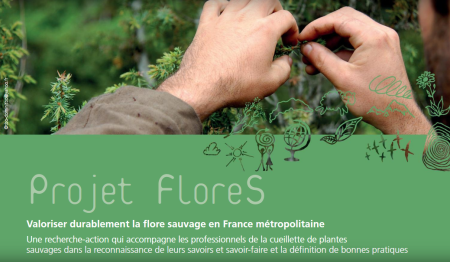
Objective:
The FloreS project has allowed the organization of a participative workshop, to analyse different types of labelling and certification that could meet the guarantees expected for wild plants’ picking. This workshop brought together researchers, certifying bodies, referent pickers and other stakeholders from the AMP sector.
Benefits and limits of third-party certification have been discussed, as well as options about participatory guarantee systems have been analysed. These element contributed to the construction of a charter for responsible professional pickers.
Context:
The need of transparency about quality and respect of the environment is a real issue regarding products derived from wild plants; it is required both by a majority of consumers and pickers/processors. The value of practices and products, and the customers’ confidence depend on it.
Certification tools address two major issues to picking occupations: the standardization of practices is not adapted to artisanal activities, and costs of production raise due to guarantee and control requirement.
Contacts:
Florence PINTON, florence.pinton@agroparistech.fr, htpp://www.agroparistech.fr
Valérie BOISVERT, valerie.boisvert@unil.ch, https://www.unil.ch
Further information:
FloreS, 2019 – Document de synthèse des travaux du projet (2014-2018), UNIL/AgroParisTech/CBNPMP/FEH, 44p
https://www.natureetprogres.org/wp-content/uploads/2018/12/PGS_Brochure_FR_WEB-2016_IFOAM.pdf
Le Manuel pratique des systèmes de garantie participatifs, 2015 - https://www.natureetprogres.org/wp-content/uploads/2018/12/NP_M-SPG_2015-V7web.pdf
La charte de l’AFC (Association française des professionnels de la cueillette de plantes sauvages) : http://www.cueillettes-pro.org/LA-CHARTE-DE-L-AFC-105.html